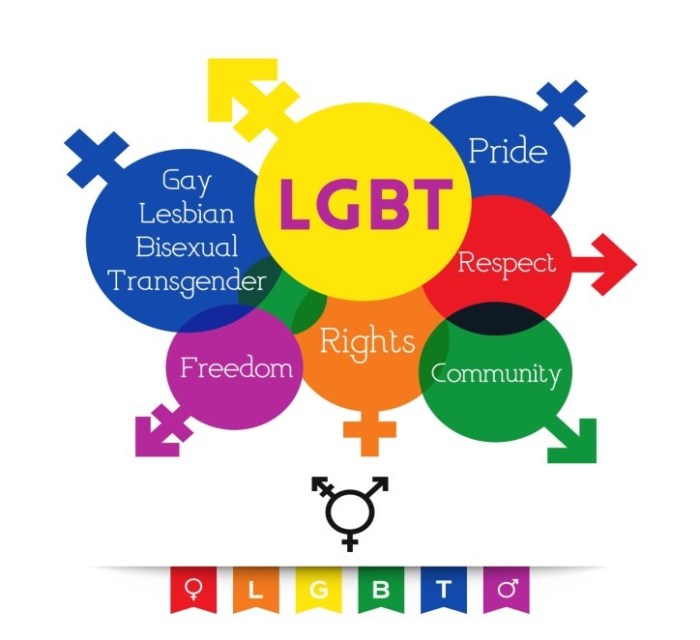One way addiction counselors can advocate for LGBTQ clients is by understanding their unique needs and experiences, advocating for equitable access to care, promoting LGBTQ-inclusive treatment approaches, building partnerships and collaboration, and educating and empowering clients.
LGBTQ individuals face unique challenges and experiences in accessing mental health services, including discrimination, stigma, and lack of culturally competent care. Addiction counselors can play a vital role in creating a safe and inclusive environment for LGBTQ clients by understanding their needs and providing culturally sensitive care.
Understanding the Needs of LGBTQ Clients

LGBTQ individuals face unique challenges and experiences when accessing mental health services. Cultural insensitivity and a lack of LGBTQ-affirming care can create barriers to accessing treatment and support. One way addiction counselors can advocate for LGBTQ clients is by understanding their specific needs and creating a safe and inclusive environment.
Creating a Safe and Inclusive Environment, One way addiction counselors can advocate for lgbtq clients is
- Use inclusive language and avoid stigmatizing terms.
- Display LGBTQ-friendly symbols and resources in the treatment setting.
- Educate staff on LGBTQ issues and cultural sensitivity.
- Provide opportunities for clients to connect with other LGBTQ individuals.
Advocating for Equitable Access to Care

Barriers to accessing addiction treatment services for LGBTQ individuals include discrimination, lack of insurance coverage, and a lack of culturally competent providers. Advocacy is essential to promoting equitable access to care and ensuring that LGBTQ clients have the same opportunities for recovery as non-LGBTQ individuals.
Role of Advocacy
- Educating policymakers about the unique needs of LGBTQ clients.
- Advocating for funding and resources for LGBTQ-specific addiction treatment programs.
- Challenging discriminatory practices and policies that create barriers to care.
- Supporting LGBTQ clients in navigating the healthcare system and accessing the services they need.
Promoting LGBTQ-Inclusive Treatment Approaches

LGBTQ-inclusive addiction treatment approaches recognize the unique experiences and needs of LGBTQ individuals. Trauma-informed care is particularly important for LGBTQ clients, who may have experienced discrimination, violence, or rejection.
Evidence-Based Treatment Approaches
- Cognitive-behavioral therapy (CBT) tailored to LGBTQ clients.
- Motivational interviewing with a focus on LGBTQ-specific issues.
- Group therapy specifically for LGBTQ individuals.
- Peer support programs that provide a safe and supportive environment for LGBTQ clients.
Building Partnerships and Collaboration
Collaboration and partnerships are essential to enhancing the delivery of services to LGBTQ clients. Key stakeholders include LGBTQ organizations, community health centers, and addiction treatment providers.
Benefits of Collaboration
- Increased access to resources and services for LGBTQ clients.
- Improved coordination of care between different providers.
- Increased visibility and awareness of LGBTQ addiction issues.
- Opportunities for professional development and training on LGBTQ-specific topics.
Educating and Empowering Clients: One Way Addiction Counselors Can Advocate For Lgbtq Clients Is
Educating LGBTQ clients about their rights and resources is essential for empowering them to navigate the healthcare system and access the services they need. Advocacy plays a crucial role in empowering clients to speak up for themselves and advocate for their own well-being.
Educational Materials and Resources
- Brochures and pamphlets on LGBTQ addiction issues.
- Online resources and support groups for LGBTQ clients.
- Training programs for LGBTQ clients on self-advocacy and accessing services.
- Peer support programs that provide a safe and supportive environment for LGBTQ clients to learn about their rights and resources.
Frequently Asked Questions
What are some of the unique challenges faced by LGBTQ individuals in accessing addiction treatment services?
LGBTQ individuals face a number of unique challenges in accessing addiction treatment services, including discrimination, stigma, and lack of culturally competent care. They may also be more likely to experience trauma, which can make it difficult to seek help for addiction.
What is the role of advocacy in promoting equitable access to care for LGBTQ individuals?
Advocacy plays a vital role in promoting equitable access to care for LGBTQ individuals. Addiction counselors can advocate for policies that protect the rights of LGBTQ individuals and ensure that they have access to the same quality of care as other individuals.
What are some examples of successful advocacy efforts that have improved access to services for LGBTQ clients?
There are a number of successful advocacy efforts that have improved access to services for LGBTQ clients. For example, the National LGBT Task Force has worked to pass laws that protect the rights of LGBTQ individuals and ensure that they have access to the same quality of care as other individuals.